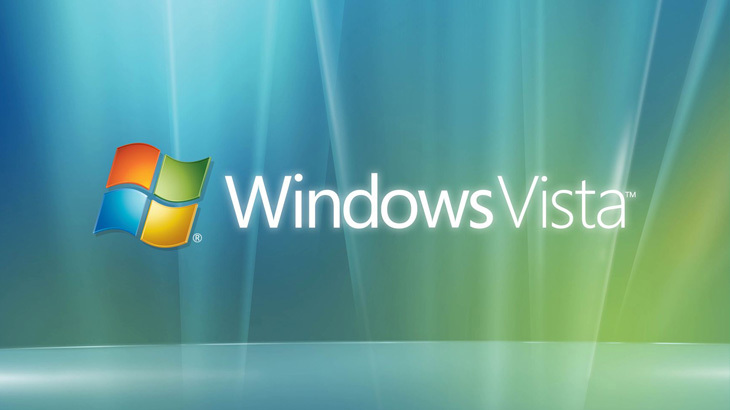Steve Hogan

It was six months ago that we were anxiously awaiting the introduction of Microsoft’s new operating system, Vista. My love of computing started when XP was introduced so Vista’s introduction carried me back to the excitement of those days. If only it could have been the same.
My disappointment with Vista wasn’t immediate, but with each problem and irritation the overall experience became a negative one. I’m not alone in this feeling. It seems everyone is mostly disappointed with Vista.
Lets look as some figures and see if Vista is really the disappointment we’re hearing about.
| 1. | Windows 98 | 400,000 copies |
| 2. | Windows XP | 300,000 copies |
| 3. | Windows 2000 | 200,000 copies |
| 4. | Windows Vista | 125,000 copies |
Sales of the Vista stand-alone unit are only 60% of what the sales of XP were in its first six months. That’s not conjecture it’s fact. That drop is reflected in individual units and in a corresponding drop in revenue.
However, a full 80% of Vista sales come from copies installed on new machines at the factory level. Since new computer sales are almost double what they were during XP’s introduction, 128 million yearly then compared to 239 million yearly now, Vista shows an increase in units sold at this level. But does does this reflect an increase in computer sales or an increase because Vista sales? Vista’s increased hardware requirements might be inspiring some new computer purchases, but computer sales are up in general without Vista’s help.
Another interesting fact and one that seems to cement the poor acceptance of Vista is the great reception of Microsoft Office 2007. It’s sales were double the 6 months sales of Office 2003 and 60% higher than Office 2003’s current sales figures. Office 2007, released the same day as Vista, is a hit. Vista is not.
So what is causing this flop of an introduction?
1. Tough Hardware Requirements: The first thing we heard about Vista was “Check your hardware”. Without upgrading most users would experience Vista computing at a crawl. A decent processor and plenty of memory are mandatory to having a good experience with Vista. Did I mention memory? Money decisions involved in a computer purchase, not to mention the loss of info and data by the inexperienced, are enough to slow the change to Vista. Couple this with the continued discovery of networking problems:
Microsoft has confirmed that Windows Vista is the cause and that the problem resides in the use of an outdated router. “An outdated network router may not function correctly when you use it together with new networking features in Windows Vista,” informed Microsoft. In some cases, the network router will stop functioning completely and require a reset.
2. Lack of proper drivers: While the development of drivers is the responsibility of the device manufacturer it doesn’t much matter whose fault it is that they are not available or faulty. Before Vista was formally introduced I was using a copy of Vista RC1 from Microsoft.I had a problem then, installing drivers for Nvidia video cards and motherboards, and darned if I didn’t run into the same thing just this week. We’re more than six months down the road and yet I still can’t use Vista on my preferred hardware. It’s not like Nvidia is a small player in the graphics card market. Besides there has to be a reason for Nvidia dragging their feet. It would be nice to know whose fault it is but the problem isn’t solved with placing blame. I can’t use the OS regardless. It won’t work on my hardware. Case closed.
3. Application compatibility issues: Anyone heard of QuickBooks? If you’re using QuickBooks 2007 you’re in luck. If not plan on spending the money for the new version. The 2006 and earlier versions won’t work. According to QuickBooks Product Manager George Jacquette,Vista file management makes it to hard to rewrite earlier versions of QuickBooks. No problem? Right, just add another $200.00 for QuickBooks Pro to your total for the new machine or the New Vista Boxed version.
4. User Account Controls: For any product to be successful on a grand scale it must fill a need and be easy for the masses to use. Since it’s beginning we’ve heard about increased security with Vista People have been screaming about Windows virus and spyware activity forever. Microsoft’s answer, User Account Controls. While it may supply more security it just isn’t easy for the “average” user to contend with or configure. You be the judge. Think of your five closest neighbors and imagine them configuring Vista UAC using this document from Microsoft as a guide. It’s not going to happen. Most of the people reading this will be somewhat computer savvy. I wonder how many of us have actually configured the UAC and how many have just removed it. I removed it.
So there you have it. There are other signs that the launch is going slower than expected. Microsoft has extended availability of XP until June of 2008. Business is, as usual, awaiting the first update or service pack. Is this unusual? Will Microsoft pull the plug on Vista? Naw, it’s been the same with each introduction of Windows since Windows 95. Some were accepted faster than expected and some slower. The interesting articles will be written at the one-year mark. See you then.




